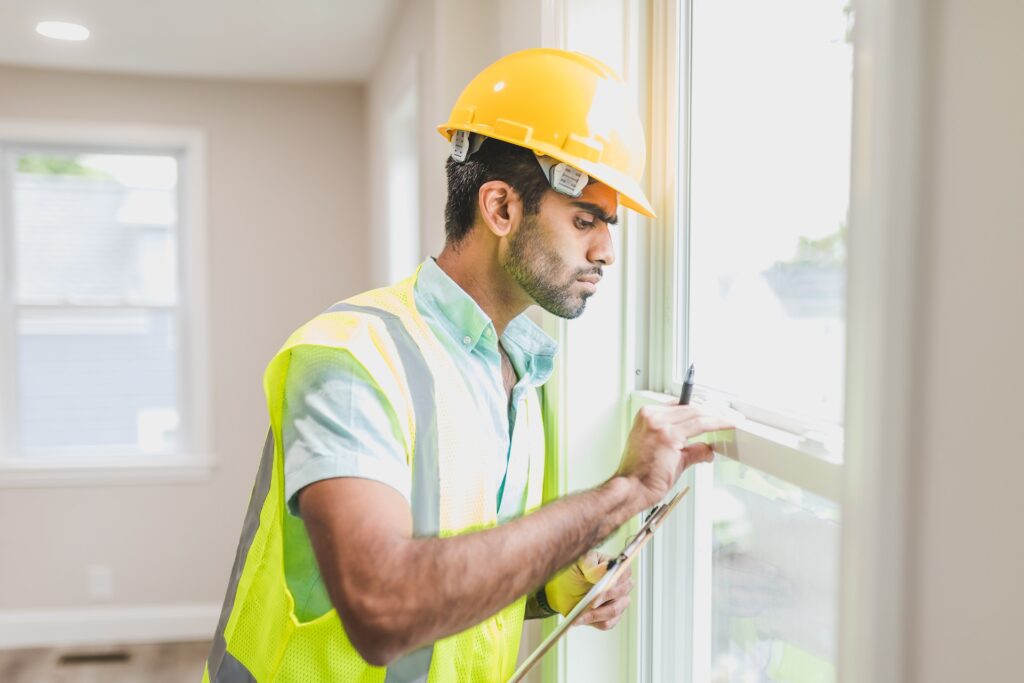Are you thinking about buying property in Portugal? If so, you may be interested in understanding the process involved in purchasing a house in this country. While it’s generally straightforward, there are nuances worth considering, especially when compared to other nations. In this article, we’ll explore all the essential details, guiding you through each step of the process while highlighting potential pitfalls to avoid.
Why Buying Real Estate in Portugal?
Attractive Real Estate Market: Portugal’s real estate market is considered stable and offers good potential for capital appreciation, especially in popular areas like Lisbon, Porto, and the Algarve.
High Rental Yields: Certain areas in Portugal, particularly tourist destinations, offer high rental yields, making property investment a potentially lucrative option for investors.
Quality of Life: Portugal is renowned for its high quality of life, beautiful landscapes, favorable climate, and welcoming culture, making it an attractive destination for both investors and expatriates.
Affordability: Compared to other European countries, property prices in Portugal are relatively affordable, offering investors the opportunity to enter the market without breaking the bank.
Tourism Growth: Portugal’s tourism industry continues to grow, attracting millions of visitors each year. Investing in rental properties can capitalize on this trend and generate steady rental income.

Things to Check When Buying a House
Legal status: Verify that the property has clear legal title and all necessary permits for construction and renovations. Consult with a local lawyer or notary to review the property’s legal documentation.
Property condition: Inspect the property thoroughly for any structural issues, water damage, mold, or signs of poor maintenance. Pay attention to the roof, walls, floors, plumbing, and electrical systems.
Location: Evaluate the neighborhood, proximity to amenities (such as shops, schools, public transportation), and future development plans in the area. Consider factors like noise levels, accessibility, and safety.
Utilities and infrastructure: Verify the availability and condition of essential utilities such as water, electricity, sewage, and internet connectivity. Consider the quality and reliability of local infrastructure.
Environmental factors: Assess potential risks such as flooding, erosion, or forest fires, especially if the property is located near coastal areas or in rural regions.
Property taxes and fees: Understand the applicable property taxes, condominium fees (if applicable), and any other recurring expenses associated with owning the property.
Resale value: Evaluate the property’s potential for appreciation in value over time. Consider factors such as market trends, demand for similar properties in the area, and planned infrastructure developments.
Property Inspection Before Buying
Conducting a property inspection before buying is crucial to ensure you’re making a wise investment and avoiding potential issues. Here’s why property inspection is important and what it typically involves:
Identifying Structural Issues: A professional inspector can assess the property’s structural integrity, including the foundation, walls, roof, and structural components. This helps identify any hidden defects or structural damage that may require costly repairs.
Evaluating Safety Hazards: Inspections help uncover safety hazards such as faulty wiring, plumbing leaks, mold, asbestos, or other health risks. Addressing these issues ensures the property is safe for occupancy and protects the well-being of occupants.
Assessing Mechanical Systems: Inspectors will evaluate the condition of mechanical systems such as HVAC, plumbing, electrical, and ventilation systems. Identifying any issues early on can prevent unexpected breakdowns and costly repairs after purchase.
Detecting Pest Infestations: Inspections can uncover signs of pest infestations, such as termites, rodents, or wood-destroying insects. Detecting and addressing pest issues early can prevent extensive damage to the property.
Estimating Repair Costs: A thorough inspection provides insight into the property’s condition and helps estimate repair and maintenance costs. This information allows buyers to budget accordingly and negotiate repairs or adjustments to the purchase price.

Buying a House with Water Damage
Buying a home with water damage requires careful consideration. First, assess the damage’s extent through a professional inspection to understand repair needs and underlying issues. This insight is crucial for deciding whether the property is worth pursuing.
Next, evaluate repair costs and feasibility. From minor fixes to major renovations, repairs vary in complexity and expense. Consider budget constraints and whether repairs require professional assistance or can be DIY projects. Inquire about insurance coverage and past claims on the property to gauge potential risks.
Lastly, negotiate with the seller based on inspection findings and repair estimates. While buying a water-damaged home may offer a chance for a lower purchase price, ensure negotiations reflect repair costs and associated risks. With diligence, buying a water-damaged home can be a rewarding investment opportunity.
Structural Problems House
Structural problems in a house can significantly impact its safety, stability, and value. Before purchasing a property with structural issues, it’s crucial to conduct a thorough inspection by a qualified professional to assess the extent of the damage.
Depending on the severity of the problems, buyers may need to consider the potential costs and complexities of repairs, as well as the long-term implications for the property’s resale value and livability.
Consulting with experts and negotiating with the seller to address these issues upfront are essential steps to ensure a successful and informed home purchase.

Home Inspection Services in Portugal
Home inspection services are essential for ensuring the structural integrity and safety of a property before buying or selling. Here are three examples of home inspection service providers:
Check House: Check House offers comprehensive home inspection services to buyers and sellers in the local area. Their team of licensed inspectors conducts thorough assessments of properties, identifying any potential issues or safety concerns.
LaijkIt Property: LaijkIt Property is a trusted real estate agency that also offers professional home inspection services. With their expertise in the local market and extensive knowledge of property standards, LaijkIt Property ensures that clients receive thorough and accurate inspections.
TJ Property Services: TJ Property Services specializes in home inspections for both residential and commercial properties. Their team of certified inspectors conducts detailed examinations of properties, including structural components, electrical systems, plumbing, and more.
Buying Property Hidden Costs
When purchasing property in Portugal, buyers should be aware of several hidden costs that may arise beyond the purchase price. Firstly, there are transaction fees and taxes, including the Property Transfer Tax (IMT), Stamp Duty (Imposto do Selo), and Notary and Registration fees. These costs can vary depending on the property’s value and location.
Additionally, buyers should budget for legal fees, which may include hiring a lawyer to review contracts, conduct due diligence, and handle the property transfer process. It’s also common to incur bank fees related to mortgage financing, if applicable, such as loan arrangement fees or mortgage registration fees.
Other hidden costs to consider include property insurance, maintenance fees for condominiums or gated communities, and utility connection fees. It’s important for buyers to factor in these additional expenses when budgeting for their property purchase in Portugal to avoid any financial surprises down the line.

Buying Real Estate in Portugal: Step-by-Step
The process of purchasing real estate in Portugal is relatively straightforward for both local citizens and non-residents alike. Here’s a step-by-step guide to help you navigate the process:
1) Tax Identification Number (NIF) in Portugal: As a foreigner, obtaining a Portuguese tax identification number (NIF) is necessary for property acquisition. This can be acquired from the Portuguese tax office (Finanças).
2) Portuguese Bank Account: It’s essential to have a Portuguese bank account for property transactions. This account will be used for transferring funds for the purchase, covering taxes and fees, and receiving rental income.
3) Legal Representation: Engaging a Portuguese lawyer with expertise in real estate transactions is advisable. They can assist in navigating legal aspects of the purchase and ensure compliance with regulations.
4) Home Insurance: Property insurance, mandatory in Portugal, safeguards against damage to the property and personal belongings. Additionally, it provides liability coverage in case of injuries on the property.
5) Taxes and Fees: there are several taxes and fees to consider. Property transfer tax (IMT) is based on the purchase price and ranges from 0% to 8% for residential properties. Stamp duty, typically 0.8% of the purchase price, applies to real estate documents. Notary fees cover the services of a notary public, ensuring transaction legality, while registration fees are for registering the property transfer with the Land Registry.
Why choose Portugal Residency Advisors for Buying Real Estate in Portugal
Local Expertise
We know Portugal well. Therefore, based on our extensive local knowledge, we firmly believe that concentrating our services in a single country destination is the best approach to provide you with the most thorough and useful information.
Holistic Approach
Also we offer a streamlined communication channel for the entire process, ensuring a seamless experience from start to finish. Our comprehensive service encompasses all facets of your real estate investment journey, seamlessly handling property search, negotiation, legal matters, due diligence, and property management.
Independent Service
As an independent buying agent, we possess the flexibility to collaborate with any agent, seller, promoter, or developer, thereby granting you access to a wide array of options in the real estate market. This allows us to objectively analyze every opportunity and locate the ideal property for you at the most favorable price, devoid of any complications.
Simple Process
Technology plays a pivotal role in our company, enabling us to furnish you with detailed property market information and reduce our clients’ engagement in paperwork. As customers ourselves, we possess a deep understanding of how to effectively cater to your needs.
Frequently Asked Questions About Buying a Property in Portugal: Pitfalls to Avoid
What are the common pitfalls to avoid when buying a property in Portugal?
Common pitfalls include inadequate due diligence, overlooking legal requirements, and underestimating hidden costs.
How can I ensure I'm not overpaying for a property in Portugal?
Conduct thorough market research, obtain multiple valuations, and negotiate effectively to ensure you’re paying a fair price for the property.
What legal issues should I be aware of when buying a property in Portugal?
Legal issues to consider include verifying property ownership, ensuring compliance with zoning regulations, and understanding leasehold versus freehold ownership.
Are there any hidden costs associated with buying property in Portugal?
Yes, hidden costs may include property transfer taxes, notary fees, legal fees, and maintenance expenses. It’s essential to budget for these additional expenses.
How can I avoid potential complications with the property purchase process?
Engage the services of a reputable real estate agent and legal advisor, conduct thorough due diligence, and ensure clear communication with all parties involved in the transaction.
What are the risks associated with buying off-plan or newly built properties in Portugal?
Risks may include delays in construction, changes in building specifications, and potential developer insolvency. It’s essential to research the developer’s track record and ensure adequate legal protections are in place.
What steps should I take to protect my investment when buying a property in Portugal?
Obtain a comprehensive survey, ensure the property has clear title deeds, consider purchasing property insurance, and seek professional advice throughout the purchasing process.
What are the potential pitfalls of buying property in rural or remote areas of Portugal?
Challenges may include limited access to amenities and services, difficulties with property maintenance and management, and lower demand for resale or rental purposes.




